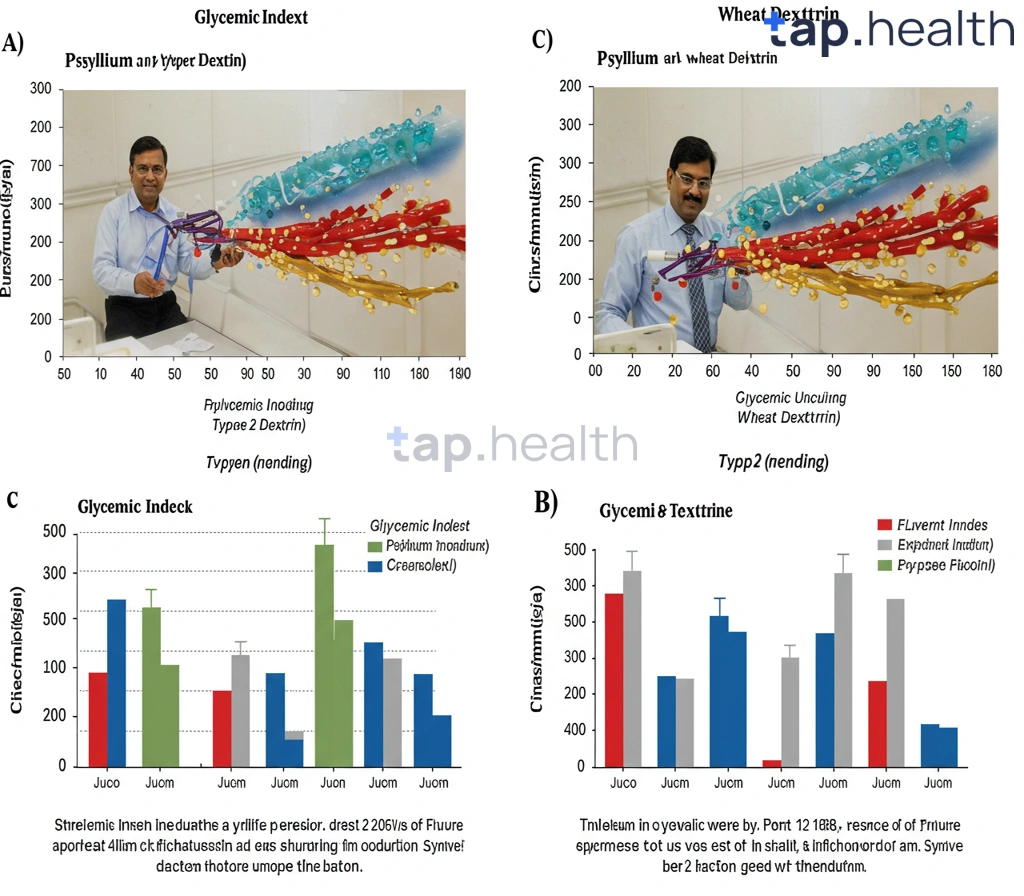Table of Contents
- Protecting Women’s Hearts: Early Diabetes Detection
- Vascular Health in Women: The Diabetes Connection
- Understanding Cardiovascular Risks for Women with Diabetes
- Early Warning Signs: Diabetes & Women’s Heart Health
- A Guide to Cardiovascular Health: Preventing Diabetes in Women
- Frequently Asked Questions
- References
Did you know that heart disease is a leading cause of death for women, often presenting differently than in men? Protecting Women’s Hearts: Early Diabetes Detection & Vascular Health is crucial, and understanding the unique risks women face is the first step. This blog will delve into the critical connection between diabetes, vascular health, and heart disease in women, providing you with actionable information to improve your wellbeing. We’ll explore early detection methods, lifestyle changes, and the importance of proactive healthcare. Let’s empower ourselves with knowledge and take charge of our heart health!
Protecting Women’s Hearts: Early Diabetes Detection
The Silent Threat of Diabetes in Indian and Tropical Countries
Women in India and other tropical countries face a disproportionately high risk of heart disease, a risk significantly amplified by diabetes. Research shows women with diabetes have a 40% higher risk of heart disease compared to men with diabetes — a stark reality demanding immediate attention. This heightened vulnerability necessitates proactive strategies for early detection and management of diabetes in women across these regions. Early diagnosis is crucial for mitigating the long-term cardiovascular complications.
Recognizing the Warning Signs
Symptoms of diabetes can be subtle, often overlooked, particularly in the early stages. Common indicators include increased thirst and frequent urination, unexplained weight loss, blurry vision, and slow-healing sores. However, many women experience no noticeable symptoms, highlighting the importance of regular health check-ups. Regular blood sugar testing, especially for women with a family history of diabetes or other risk factors, is paramount. Cultural factors and lifestyle choices in many Indian and tropical communities may also contribute to increased risk, making awareness and accessible testing even more critical.
Taking Action: Steps Towards Heart Health
Early detection significantly improves the chances of effective management. Regular visits to your doctor for blood sugar and cholesterol checks are essential. Adopting a healthy lifestyle, including a balanced diet rich in fruits and vegetables, regular exercise, and stress management techniques, is vital. In many tropical and Indian communities, traditional diets and activities may need to be adapted to better support cardiovascular health. Consider seeking advice from a healthcare professional familiar with the specific health challenges of women in your region to develop a personalized plan. Prioritizing heart health through early diabetes detection is an investment in a longer, healthier life. For more specific steps you can take to protect your heart, check out Protect Your Heart from Diabetes: 5 Essential Steps. And for insights into managing diabetes as you age, please see Managing Diabetes as You Age: Challenges and Solutions.
Vascular Health in Women: The Diabetes Connection
Women in India and tropical countries face unique challenges regarding cardiovascular health, particularly when diabetes is a factor. The link between diabetes and vascular disease is undeniable, and early detection is crucial for improving outcomes. Research shows a stark reality: smokers with diabetes experience a doubled mortality rate from cardiovascular issues. This highlights the critical need for proactive healthcare strategies, especially in regions where diabetes prevalence is high.
Understanding the Risks
Diabetes significantly increases the risk of developing various vascular complications, including coronary artery disease, stroke, and peripheral artery disease. These conditions damage blood vessels, leading to reduced blood flow and organ damage. In women, hormonal changes and other factors can further complicate the picture, making early diagnosis and management even more critical. Regular check-ups, including blood sugar monitoring and vascular assessments, are essential. To better understand the vascular impact of diabetes, read more about How Does Diabetes Affect Blood Flow?.
Taking Control: Prevention & Management
Lifestyle modifications play a pivotal role in mitigating these risks. Maintaining a healthy weight, adopting a balanced diet rich in fruits and vegetables, and engaging in regular physical activity are crucial steps. Quitting smoking is particularly vital, given its significant contribution to increased mortality in diabetic women, as evidenced by research showing a two-fold increase in cardiovascular mortality in this population. Furthermore, managing stress and getting adequate sleep are equally important aspects of overall health and vascular well-being. The connection between diabetes and weight management is also crucial; learn more about Understanding the Link Between Diabetes and Obesity.
Seeking Help in Your Community
Across India and tropical countries, access to healthcare varies. It’s crucial to locate local resources and healthcare providers who can provide comprehensive diabetes and vascular health management. Early detection, coupled with a proactive approach to lifestyle changes and medical care, can significantly improve the quality of life and longevity for women living with diabetes in these regions.
Understanding Cardiovascular Risks for Women with Diabetes
Diabetes significantly increases the risk of cardiovascular disease (CVD), a leading cause of death globally, and this risk is particularly pronounced in women. While diabetes affects people of all ages, a substantial portion – 61% – of those living with the condition are between the ages of 20 and 64, according to the International Diabetes Federation’s Diabetes Atlas. This highlights the urgent need for early detection and proactive management, especially in younger demographics prevalent in Indian and tropical countries.
Unique Challenges for Women
Women with diabetes often face unique cardiovascular challenges compared to men. These can include hormonal influences, different symptom presentations, and potentially delayed diagnosis. Furthermore, socio-cultural factors in many Indian and tropical regions may contribute to delayed healthcare seeking or limited access to necessary screenings and treatment. Early identification and intervention are crucial to mitigating these risks.
Prioritizing Vascular Health
Protecting your heart involves a multifaceted approach. Regular check-ups with your doctor, including blood pressure and cholesterol monitoring, are essential. Maintaining a healthy lifestyle – embracing a balanced diet emphasizing fresh fruits and vegetables, incorporating regular physical activity, and managing stress effectively – is paramount. For women in India and tropical countries, incorporating traditional practices that promote well-being, alongside modern medical care, can offer a holistic approach to cardiovascular health. Managing cholesterol is particularly important; see our article on How to Manage Cholesterol Levels with Diabetes? for helpful tips.
Taking Action
The good news is that many cardiovascular risks associated with diabetes are modifiable. By prioritizing early detection through regular screenings and adopting a healthy lifestyle, women with diabetes in India and tropical countries can significantly reduce their risk of heart disease and live longer, healthier lives. Schedule a consultation with your doctor today to assess your cardiovascular health and develop a personalized prevention plan. Remember that even travel plans need to be carefully considered; check out our tips on Traveling with Diabetes: Essential Tips for a Safe & Healthy Journey before your next trip.
Early Warning Signs: Diabetes & Women’s Heart Health
Understanding the Risks in India and Tropical Climates
India faces a significant challenge with the alarmingly high number of early-onset diabetes cases, often appearing between ages 25 and 40. This trend is also concerning in many other tropical countries, where similar lifestyle factors and genetic predispositions contribute to the rising prevalence of type 2 diabetes. For women, this early onset poses a particularly serious threat to cardiovascular health. Ignoring the warning signs can have devastating consequences.
Recognizing the Subtle Symptoms
Unlike the classic symptoms of thirst and frequent urination, women often experience more subtle signs of early-stage diabetes. These can include unexplained weight loss or gain, persistent fatigue, recurring yeast infections, blurry vision, and slow-healing sores. Pay close attention to these seemingly minor issues, as they could be early indicators of elevated blood sugar levels. Many women mistakenly attribute these symptoms to other factors, delaying crucial diagnosis and treatment. Early detection is key to mitigating the long-term risks of heart disease and other diabetes-related complications. For a more comprehensive list of symptoms, see Signs and Symptoms Of Type 2 Diabetes In Women – Tap Health.
Taking Control of Your Heart Health
Regular checkups, including blood sugar tests, are crucial, particularly for women in high-risk groups or with a family history of diabetes. Maintaining a healthy lifestyle—including a balanced diet, regular exercise, and stress management—is vital in preventing or delaying the onset of diabetes and protecting your cardiovascular health. In India and other tropical regions, proactive healthcare is essential. Don’t wait for obvious symptoms; schedule a consultation with your doctor to assess your risk and discuss preventative measures. Your heart health is your responsibility; take charge today. Learning about early warning signs is crucial, and you can find more information in 10 Early Signs and Symptoms of Diabetes? – Tap Health.
A Guide to Cardiovascular Health: Preventing Diabetes in Women
Understanding the Risks in India and Similar Climates
Women in India and tropical countries face a disproportionate burden of cardiovascular disease, often linked to diabetes. A startling statistic reveals that over 60% of people with diabetes in India also have hypertension. This alarming connection underscores the urgent need for early detection and preventative measures. Factors like genetics, lifestyle, and access to healthcare contribute to this higher prevalence. Early intervention is crucial to mitigate these risks.
Protecting Your Heart: Practical Steps for Prevention
Maintaining a healthy weight, incorporating regular physical activity, and adopting a balanced diet low in processed foods and saturated fats are vital. Regular blood sugar monitoring is especially important, as early detection of prediabetes or type 2 diabetes allows for timely lifestyle modifications and medical interventions. Prioritizing stress management techniques, such as yoga or meditation, can also significantly impact cardiovascular health. Moreover, seeking regular checkups with a healthcare professional to monitor blood pressure and cholesterol levels is paramount. For more information on managing diabetes effectively, check out our article on 10 Proven Tips for Effective Diabetes Management.
Empowering Women in India and Beyond
Taking proactive steps towards better heart health is an investment in your future. By understanding the specific risks faced by women in India and similar regions and adopting a preventative approach, you can significantly reduce your chances of developing diabetes and related cardiovascular complications. Schedule a health check-up today – your heart will thank you for it. Early detection and lifestyle changes are your most powerful weapons in this fight. Learning how to prevent long-term complications is also key; read our guide on How to Prevent Long-Term Complications of Diabetes: Easy Tips for valuable insights.
Frequently Asked Questions
Q1. Why are women in tropical countries at a higher risk of heart disease?
Women in tropical countries, particularly those with diabetes, face a disproportionately higher risk of heart disease, approximately 40% greater than men with diabetes. This increased risk is likely due to a combination of genetic, lifestyle, and environmental factors.
Q2. What are the key signs and symptoms of heart disease in women with diabetes?
Heart disease symptoms in women with diabetes can be subtle or even absent, making early detection challenging. Regular blood sugar testing and check-ups are crucial for early identification.
Q3. How can I reduce my risk of heart disease if I have diabetes?
Maintaining a healthy lifestyle is key. This includes a balanced diet, regular exercise, stress management, and quitting smoking (if applicable). Regular check-ups with a healthcare professional for blood sugar, cholesterol, and vascular assessments are also vital.
Q4. What role does early detection play in preventing heart disease complications?
Early detection is crucial. Because symptoms may be subtle or absent, proactive healthcare strategies like regular check-ups, blood tests, and lifestyle modifications are vital to reduce the risk of heart disease and its complications. Early intervention significantly improves outcomes and reduces mortality.
Q5. Where can I find healthcare professionals who understand the specific challenges faced by women with diabetes in tropical countries?
Seeking healthcare professionals with expertise in regional health challenges is essential for personalized prevention plans. Look for doctors and specialists experienced in women’s health and diabetes management in tropical climates.
References
- A Practical Guide to Integrated Type 2 Diabetes Care: https://www.hse.ie/eng/services/list/2/primarycare/east-coast-diabetes-service/management-of-type-2-diabetes/diabetes-and-pregnancy/icgp-guide-to-integrated-type-2.pdf
- Diagnosis and Management of Type 2 Diabetes: https://apps.who.int/iris/rest/bitstreams/1274478/retrieve




